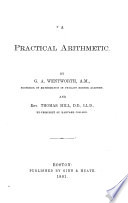 | George Albert Wentworth, Thomas Hill - Arithmetic - 1881 - 446 pages
...be three-sevenths of another unit. 255. To reduce an improper fraction to a whole or mixed number, Divide the numerator by the denominator. The quotient will be the whole number, and the remainder, if there be any, will be the numerator of the fractional part, of which the denominator... | |
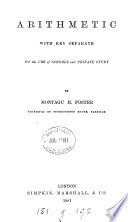 | Montagu H. Foster - 1881 - 182 pages
...2Щ. 4. 10J. 9. 763 5. 15|f 10. CASE IV. To reduce an improper fraction to a whole or mixed number. Divide the numerator by the denominator, the quotient will be the whole number required ; and if there be any remainder, place it over the denominator for the fractional part. /.-*.... | |
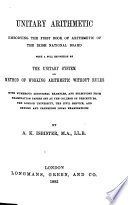 | Alexander Kennedy Isbister - 1882 - 190 pages
...2345fif, llliWr *° improper fractions. Case III. — To reduce an improper fraction to a mixed number. RULE. — Divide the numerator by the denominator;...whole number; and, if there be any remainder, place it as the numerator of the fraction. КХЛШТ.Е 1.— Reduce V to a mixed number. 27 2.1 + 3 24 3 Or,... | |
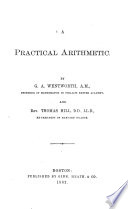 | George Albert Wentworth, Thomas Hill - Arithmetic - 1882 - 376 pages
...be three-sevenths of another unit. 255. To reduce an improper fraction to a whole or mixed number, Divide the numerator by the denominator. The quotient will be the whole number, and the remainder, if there be any, will be the numerator of the fractional part, of which the denominator... | |
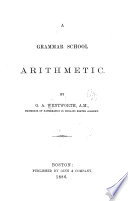 | George Albert Wentworth - Arithmetic - 1886 - 392 pages
...will be five-sevenths of another unit. 111. To reduce an improper fraction to a whole or mixed number, Divide the numerator by the denominator. The quotient will be the whole number, and the remainder, if any, will be the numerator of the fractional part, of which the denominator is the... | |
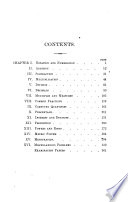 | George Albert Wentworth - Arithmetic - 1888 - 378 pages
...will be five-sevenths of another unit. 111. To reduce an improper fraction to a whole or mixed number, Divide the numerator by the denominator. The quotient will be the whole number, and the remainder, if any, will be the numerator of the fractional part, of which the denominator is the... | |
 | George Albert Wentworth - Arithmetic - 1888 - 392 pages
...be three-sevenths of another unit. 255. To reduce an improper fraction to a whole or mixed number, Divide the numerator by the denominator. The quotient will be the whole number, and the remainder, if there be any, will be the numerator of the fractional part, of which the denominator... | |
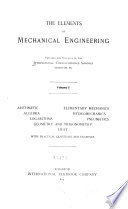 | Electrical engineering - 1897 - 672 pages
...also divided by 4, its value is J. Therefore, 5 + J, or 5j, is the number. Ans. C. Vol. I.— 3. 93. Rule. — Divide the numerator by the denominator, the quotient will be the w.hole number ; the remainder, if there be any, will be the numerator of the fractional part of which the denominator... | |
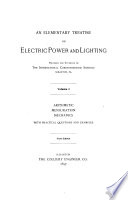 | International Correspondence Schools - Electrical engineering - 1897 - 346 pages
...is also divided by 4, its value is J. Therefore, 5 + i, or 5J, is the number. Ans. 89. Hule 7. — Divide the numerator by the denominator; the quotient will be. the whole number; the remainder, if there be any, will be the numerator of the fractional part of li'hich the denominator... | |
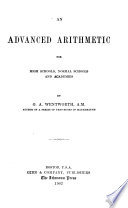 | George Albert Wentworth - 1898 - 424 pages
...sevenths of another unit. Hence, 231. To Reduce an Improper Fraction to a Whole or a Mixed Number, Divide the numerator by the denominator. The quotient will be the whole number, and the remainder, if any, will be the numerator of the fractional part, of which the denominator will... | |
| |